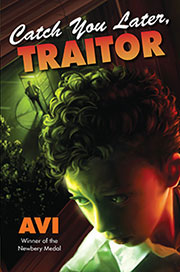 My forthcoming book, Catch You Later, Traitor, is all about secrets. Family secrets. Political secrets. Secrets among friends. Secrets between brothers.
My forthcoming book, Catch You Later, Traitor, is all about secrets. Family secrets. Political secrets. Secrets among friends. Secrets between brothers.
It was a very difficult book to write, in part, because I had lived some of those secrets when I was a boy. Moreover, I lived on the edge of a world that told me again and again, “Don’t ask about those secrets.” “If you know the secrets, don’t tell anyone about them.” “Don’t even talk about them on the phone. Someone might be listening.”
And here I was, writing about those secrets. Shouting them out, so to speak, in this book.
It made it a hard book to write.
Years ago, in another of my novels, The Man who was Poe, I have Poe saying, “Writers write best about what they know, and what they know best are their own fears.”
I suspect, however, revealing secrets can bring about good writing. Still, it is perfectly understandable that one would not want to share such things with the world. And yet, that which is true—as Hemingway might have said—is the most powerful thing a writer can write about.
So what do you do?
You tell the truth. And then you do what Paula Fox once said to me, “The writer’s job is to imagine the truth.”
In short, the best fiction is true.